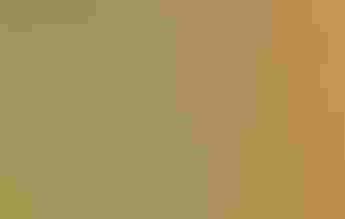
La página que intenta visitar sólo está disponible en inglés. ¡Disculpa!
The page you are about to visit is currently only available in English. Sorry!

As legend goes, the lumberjack Paul Bunyan could bring down 25 trees with a single swing of his ax. But in Bemidji, Minnesota, one of Bunyan’s many supposed homes, it’s trendier to plant trees than to cut them down. Residents of the small city, nestled in the headwaters of the Mississippi River, have banded together to populate public spaces with native habitat for birds and insects.
In the spring of 2017, the Mississippi Headwaters Audubon Society (a chapter of the National Audubon Society) joined forces with 12 organizations, including Bemidji State University, the Downtown Alliance, garden and naturalist clubs, and nurseries to launch Birds, Bees and Butterflies. The mission is simple: promote native plantings to support pollinator populations, which are in steep global decline due to vanishing habitat and the use of pesticides. “There’s been a scattering of interest from a variety of different sources for a number of years,” says Peter Buesseler, president of the Mississippi Headwaters Audubon Society. “Last year, there seemed to be an aligning of the stars.”
The relationship between plants and pollinators dates back millennia. In many cases, you can’t have one without the other: Plants coevolved alongside pollinators like hummingbirds and butterflies. Many native bird species, in turn, rely on insects for food—for example, a clutch of six chickadee chicks can gobble down 9,000 caterpillars in the 16 days between hatching and fledging.
In its first summer, Buesseler and the supergroup planted around 2,500 seedlings in demonstration gardens across the city at local businesses, a library, a city park, and an elementary school. The native landscaping—along with the adoption of other avian-friendly practices—earned Bemidji the title of “Bird City” through a program backed by Audubon Minnesota.
For some members of the campaign, a boost in birds and other pollinators is an end in itself. Others are also motivated by what the birds bring with them to the city. “Tourism is a really big industry,” says Rita Albrecht, the mayor of Bemidji. “People come to the area for nature.” Albrecht doesn't just see Birds, Bees, and Butterflies as a driver for tourism: She also thinks it will spur residents to get outside, which aligns with the city’s interest in public health.
And yet to others, native landscaping is a subtle way of honoring indigenous values. Bemidji straddles three of the largest tribal nations of Minnesota—Red Lake, White Earth, and Leech Lake—and about one in five residents claim to be of native heritage. Erika Bailey-Johnson, the sustainability director at Bemidji State University, is a descendant of the Red Lake nation; in the local Ojibwe language, she goes by “Butterfly Woman.” “They’re part of our place,” she says of native plants. “Ultimately, that's the most important thing—to nurture things that are from here.”
Part of that means growing the movement even more. Last year, Birds, Bees, and Butterflies galvanized Bemidji residents and the city government; now it’s all about “cultivating their energies,” Buesseler says. In the next few months, the campaign will host two festivals—one for monarch butterflies and another for Purple Martins, an area favorite. They’re also preparing to plant at least three more demonstration gardens at an arts center, hospital, and middle school. “Were hoping that this year, with added visibility, we’ll have more folks notice [the campaign],” Buesseler says.
Join the movement. Just type your zipcode into our handy database to discover bird-friendly native plants in your area—and where to buy them.
To take some of the mystery out of native landscaping, volunteers have put together a top-ten list of local plants, including wild geranium and red columbine, that best suit Bemidji’s birds and pollinating insects. In doing so, they hope to encourage less-experienced denizens to consider the curated species when they pull out their rakes this spring. “It’s not just about planting a native garden," Buesseler says. “It’s about adding native plants to your [existing] garden.”
Thanks to the campaign’s ongoing efforts, residents won’t have to go far to find them. Birds, Bees, and Butterflies is also working with local nurseries and garden centers to stock all 10 of these native species. As they bloom throughout the season, they'll be sure to draw new locals—caterpillars, chickadees, and ideally, birders alike.
This story originally ran in the Spring 2018 issue as “The Buzz About Bemidji.” To receive Audubon magazine in print, become a member by making a donation today.